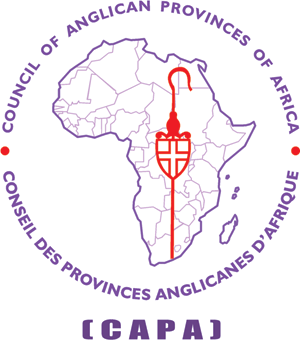Anglican Migration and Anti-Human Trafficking Community of Practice Workshop
CAPA in collaboration with Anglican Alliance have walked alongside the Churches (Anglican and ecumenical) and other agencies (governmental and none governmental) in setting up structures to coordinate response to today’s migration and human trafficking situation in Africa and the rest of the World. This work is addressing all forms of migration, both voluntary and forced in a multi-stakeholder approach. The partnership with the Alliance in collaboration with Salvation Army, held meetings for Anti Human Trafficking (AHT) community of practice in South Africa and Nairobi in 2016 and 2018 respectively.
In May 2019, in collaboration with Churches Witnessing With Migrants (CWWM), CAPA held an inter-faith consultative conference of practitioners on migration and trafficking in Nairobi to determine a structured response to the challenge. This resulted into creation of 5 regional hubs (Southern, Eastern, Central, Northern and Western Africa) coordinated by CAPA as the continental Platform.
CAPA, through its members participating in the ecumenical and interfaith platforms, adopted the 7Ps of the faith communities’ freedom framework (Prayer, Prevention, Protection, Prosecution, Partnership, Participation & Policy). These members also determined the need to establish an Anglican denominational Community of Practice in Anti-Human Trafficking & Safe Migration. This community would in addition to acting as the Anglican Think tank, enable Anglicans across the continent to share experiences, best practices, learn and document achievements.
This workshop in November 2019 in Johannesburg therefore brought together practitioners (both lay and clergy) of anti-human trafficking and safe migration within the Anglican Church in Africa to:
- Understand theological underpinnings of migration and human trafficking
- Gain a deeper understanding of migration and human trafficking context in Africa including push and pull factors; routes, forms and trends.
- Share experiences, data, programs, processes, best practices, and achievements in response to migration and human trafficking.
- Design a structured and coordinated work of Anglican Church on HT & SM.
- Establish networks of practitioners and partners for the Church’s sustained engagement on HT & SM.
The participants were drawn from 8 Provinces of the Anglican Church namely: Southern Africa (Eswatini, South Africa and Mozambique), Uganda, Central Africa (Zambia), Congo, Kenya, Alexandria (Egypt), Tanzania, and West Africa (Ghana).
The workshop deliberated on theological, systemic, structural, cultural and practical issues on both migration and human trafficking. The participants agreed on a framework of the Anglican Church’s response anchored on Micah 6:8. “He has told you, O man, what is good; and what does the Lord require of you but to do justice, and to love kindness, and to walk humbly with your God?”
- Act justly
- Love mercy
- Walk humbly with God
- Humble walk with God – Adoration
- Disrupting narratives and providing alternatives
- Reading scriptures differently and providing bible study materials
- Preparing prayers and incorporating forced migration & human trafficking in Church liturgies
- Marking freedom weeks climaxing in a freedom Sunday in Church calendars
- Production of resources (Documentaries, brochures, short video clips, animations etc.) and dissemination of FM & HT information.
- Testimonies of the restored
- Telling stories through music, dance and drama
- Awareness in Schools through debates, essay writing
- Mainstreaming HT&M conversations in Church gatherings e.g. Provincial, Diocesan conferences, summits etc.
- Exposure visits and interactive learning
- Loving Mercy – Acts of mercy
- Provision of shelters for victims through partnerships (Urban based Dioceses to lead the initiative) e.g. Christian INGOs, UN bodies.
- Clinical medical services provision
- Psycho-social support
- Social enterprises
- Re-integration processes
- Creation of Safe spaces in Churches
- Legal support to Human Trafficking victims
- Acting Justly – Acts of Justice
- Policy and legal reviews & formulation through participatory processes utilizing Church structures
- Popularizing laws among Church communities
- Exposure visits of leaders
- Church structures engaging with national structures
- Mobilizing Church structures to participate in Campaigns against HT
- Pursuing justice along value chains of products and services
- Research and mapping
- Denouncing traffickers
- Building just systems and processes in the Church e.g. through sanctions, addressing abuse of power in the Church.
This framework shall be implemented through the Church structures and instruments i.e.:
- Council of Anglican Provinces of Africa
- Provincial
- Diocesan
- Mothers’ Union & Women’s Guilds
- Men’s fellowships
- Champions
- Youth fellowships




